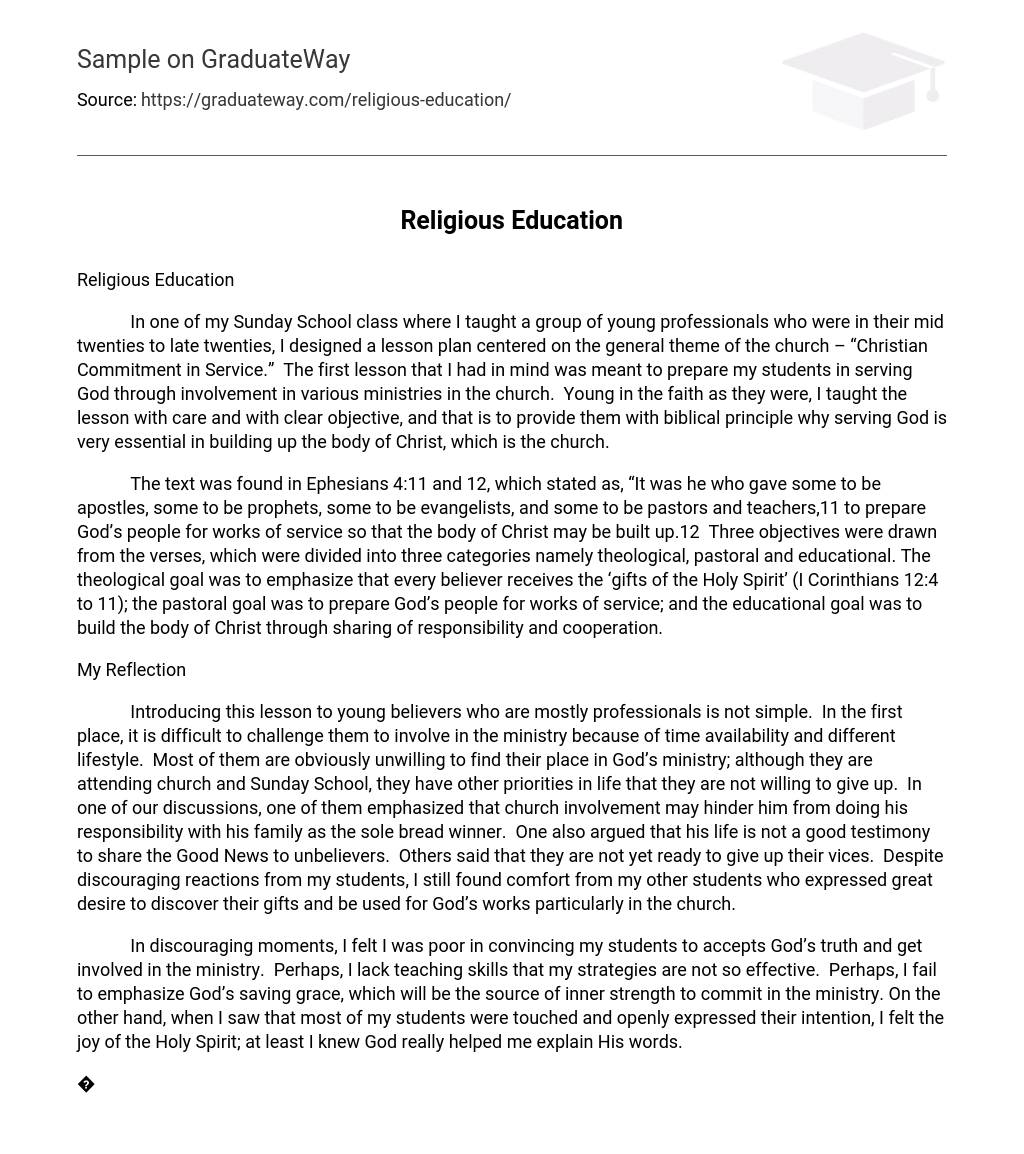In one of my Sunday School class where I taught a group of young professionals who were in their mid twenties to late twenties, I designed a lesson plan centered on the general theme of the church – “Christian Commitment in Service.” The first lesson that I had in mind was meant to prepare my students in serving God through involvement in various ministries in the church. Young in the faith as they were, I taught the lesson with care and with clear objective, and that is to provide them with biblical principle why serving God is very essential in building up the body of Christ, which is the church.
The text was found in Ephesians 4:11 and 12, which stated as, “It was he who gave some to be apostles, some to be prophets, some to be evangelists, and some to be pastors and teachers,11 to prepare God’s people for works of service so that the body of Christ may be built up.12 Three objectives were drawn from the verses, which were divided into three categories namely theological, pastoral and educational. The theological goal was to emphasize that every believer receives the ‘gifts of the Holy Spirit’ (I Corinthians 12:4 to 11); the pastoral goal was to prepare God’s people for works of service; and the educational goal was to build the body of Christ through sharing of responsibility and cooperation.
My Reflection
Introducing this lesson to young believers who are mostly professionals is not simple. In the first place, it is difficult to challenge them to involve in the ministry because of time availability and different lifestyle. Most of them are obviously unwilling to find their place in God’s ministry; although they are attending church and Sunday School, they have other priorities in life that they are not willing to give up. In one of our discussions, one of them emphasized that church involvement may hinder him from doing his responsibility with his family as the sole bread winner. One also argued that his life is not a good testimony to share the Good News to unbelievers. Others said that they are not yet ready to give up their vices. Despite discouraging reactions from my students, I still found comfort from my other students who expressed great desire to discover their gifts and be used for God’s works particularly in the church.
In discouraging moments, I felt I was poor in convincing my students to accepts God’s truth and get involved in the ministry. Perhaps, I lack teaching skills that my strategies are not so effective. Perhaps, I fail to emphasize God’s saving grace, which will be the source of inner strength to commit in the ministry. On the other hand, when I saw that most of my students were touched and openly expressed their intention, I felt the joy of the Holy Spirit; at least I knew God really helped me explain His words.
Teaching people of the Word of God is challenging; it is a source of both joy and discouragement. It is challenging because the more I teach the more I discover what I have to improve in my self, in my knowledge, and in my methodology. The more people are converted to the Christian faith the happier I become.
The topic that I discussed on that day served as a turning point in my ministry because from then on I started a new outlook in my teaching ministry and that is to ensure that my students could integrate the lesson in their lives and makes it meaningful the way I draw it in my lesson plan. I finally confronted them with God’s word as I took the courage to explain God’s intentions that prompted them to give both negative and positive reaction. These reactions serve to gauge the level of the commitment of the students. Next time, I will further address their needs in order for to realize their spiritual conditions.
Reference
Ephesians 4:11 and 12. New International Version.
I Corinthians 12:4 to 11. New International Version.





